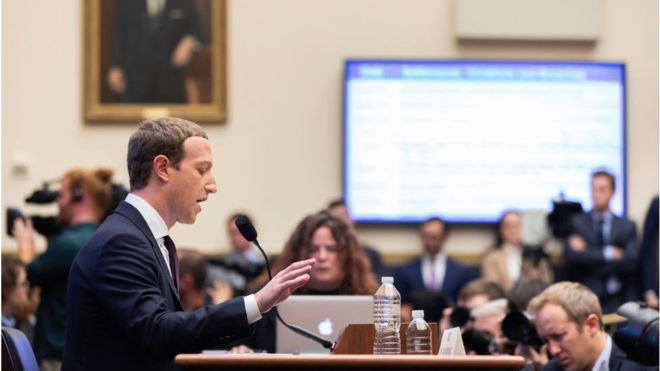
PHOTO COURTESY OF GETTY IMAGES
About two weeks ago, Mark Zuckerberg, CEO of Facebook, said that the platform will continue supporting the maintenance of free speech and will not fact-check candidate election ads. Rather, he believes that the disputed political arguments should be left up for public and press debate. Zuckerberg has since come under fire by political candidates, members of Congress, and several major media networks for these comments, made during a recent speech at Georgetown University, in which he defends Facebook’s commitment to freedom of expression.
Those who oppose Zuckerberg’s decision claim that political neutrality is nearly impossible within Facebook’s algorithm and may empower or validate political candidates or advocacy groups to skew information that the public may deem reliable and accurate. Specifically, a large number of left-leaning media outlets and democratic candidates hold the opinion that Facebook’s decision may support Trump’s re-election; additional criticism was reserved for the platform’s decision to include
Breitbart
in its “News” feature that will be released later this week. The backlash comes at a time when candidates for the 2020 election have been essentially bombarding social media platforms with their campaign advertisements. The question remains whether Zuckerberg’s decision is truly protecting candidates and users’ rights to free speech or whether it assists in the circulation of factually-incorrect information, an issue that dominated pre- and post-election coverage in 2016?
While Facebook’s algorithm used to feature a chronological timeline of posts, it has been reconfigured in a way that prioritizes two forms of content: engagement optimization and paid advertising. Facebook does have policies in place that purportedly limit the spread of certain false feed posts, such as medical misinformation and hoaxes. Yet, it will continue to allow paid political advertisements to spread if they reach target engagement levels.
Zuckerberg’s focus on maintaining a platform that includes political speech is well-founded and undoubtedly part of the democratic tradition that America’s ideals were founded on. However, critics are rightfully concerned with the sincerity of these claims, as Facebook is in part selectively choosing which advertisements garner the most views and public attention through its targeted algorithm. While it may not mean that a particular political side is favored, their system is established in such a way that it prioritizes the most scandalous content on Facebook users’ feeds — the conspiracy theories, polarizing arguments, and flat-out extremist ideas.
Many Facebook users have probably experienced a moment of seeing absurd and controversial content among the first posts that appear when opening up the app or website. Current concerns ask whether Zuckerberg’s decision not to censor political advertisements is justifiable. The relationship between how the company prioritizes free speech and the involvement of major media carries loaded implications.
Facebook undoubtedly plays a pivotal role in informing the public’s opinion. However, pushing for the censorship of particular political campaigns goes against the democratic ideology we claim to value above all — that is, allowing for everyone to have a voice. Criticisms of Facebook in this moment should be focused on how the site delivers particular content and its skewed algorithm rather than Zuckerberg’s decision to prioritize protecting the right to free speech.
